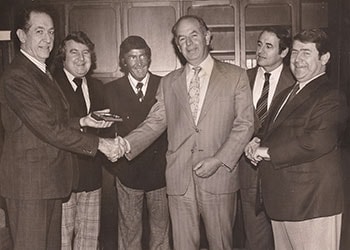 Born: November 27, 1922
Born: November 27, 1922
- Died March 29, 1992
Committee: 1952 - 1979
Assistant Treasurer: 1953 - 1958
Vice President: 1959 - 1965, 1971 - 1976
Treasurer: 1968 - 1979
Match Committee - Premiership: 1961
Chairman of Social and Fund Raising: 1953 - 1975
Life Member: 1959
Hall of Fame Inductee: 2015
VFL / AFL Honours
The Jack Titus Award – Services to Football 1978
Max Elmer was born in Deloraine, Tasmania and attended Launceston High School. With the advent of World War 2, Elmer moved to Melbourne to join the RAAF where he met Jack McLeod who was a star rover with Hawthorn. It was McLeod’s enthusiasm that kindled Elmer interest in following the Hawks. His long serving involvement at Hawthorn began in 1951 when he was asked by Arthur Dunning to take on the task of Honorary Ticket (Membership) Secretary.
In 1950, Elmer gained employment first as an accountant at the radio station 3DB, then as Station Manager and became a member at Hawthorn. 1956 saw the beginnings of the new exciting medium of Television. Elmer joined the fledging Channel 7 and worked closely with Ron Casey on the Football Show that was to gain legendary status in the eyes of the football public.
His genial and considerate nature opened many doors enabling the Hawks to receive much needed publicity on radio and TV as the Club gained success with its first finals appearance in 1957 followed by the 1961 Premiership.
Considered one of the finest ambassadors for the Hawthorn Football Club, Max served on the committee for 27 years. Known for his wisdom, loyalty and business acumen, his contribution reflected the success both on the field and the Club’s sound financial position.
Achievements that Max identified in a recorded Interview with the late Harry Gordon:
• Most import achievement - appointing John Kennedy as Coach.
• Recruiting Peter Hudson with Ron Cook.
• Established regional recruitment officers in Hawthorn’s zones.
• Established the Hawthorn District Junior League for recruiting with Bill Wallace.
• Played a leading role in establishing the Social Club in 1962 as a meeting place for members and as an important venue for raising Club revenue.
• Introduced testimonials for players who had played 10 years or 150 games. Roy Simmonds was the first recipient. Testimonials continued till 2002 when Shane Crawford and Mark Graham were honoured.
• Supervised Club dinners after each home game with wife, Jess.
• Established the first souvenir stall selling Club memorabilia.


